Maintain and improve the quality of universal education
At the 2025 Conference of Directors of the Department of Education and Training, the Ministry of Education and Training said: in the 2024-2025 school year, the education sector has maintained and improved universal preschool education for 5-year-old children, universal primary and secondary education, eradicated illiteracy and implemented universal preschool education for children from 3 to 5 years old.
Since September 2024, a number of provinces and cities have proposed and been recognized by the Ministry of Education and Training to achieve universal primary and secondary education and eliminate illiteracy at a higher level.
By June 2025, 63/63 provinces/cities nationwide will maintain and meet the standards of universal primary education (100%); of which 40/63 provinces/cities will be recognized as meeting the standards of universal primary education at level 3, reaching 64% (an increase of 4 provincial-level units, equivalent to 6% compared to the same period last year).
The rate of communes and districts meeting the standards for universal lower secondary education is 100%, of which: the rate of districts meeting the standards for universal lower secondary education level 1 is 48.69%; the rate of districts meeting the standards for universal lower secondary education level 2 is 50.87%, and the rate of districts meeting the standards for level 3 is 21.62%.
Implementing the Party's policies on universalizing preschool education for children from 3 to 5 years old, the Ministry of Education and Training has advised the Government to submit to the National Assembly Resolution 218/2025/QH15 on universalizing preschool education for children from 3 to 5 years old. Currently, the Ministry of Education and Training is researching and drafting documents to direct and guide the implementation of Resolution No. 218/2025/QH15.
In addition to the achieved results, some localities have not fully understood the importance and role of universal education; they only pay attention to the immediate goal of striving to meet standards, and have not paid due attention to consolidating, maintaining, and improving the results of universal education and illiteracy eradication. The activities of some Steering Committees for universal education and illiteracy eradication are not regular and not really effective. The quality of universalization is still low and unstable in some localities.
Teaching Vietnamese to ethnic minority children before entering first grade
The Ministry of Education and Training has issued an Official Dispatch directing the Departments of Education and Training to advise the Provincial People's Committees to submit to the People's Councils of the same level to decide on personnel and funding to implement Vietnamese language teaching for ethnic minority children before entering first grade in the locality and guide the Departments of Education and Training to develop plans and organize implementation.
Provide training and education for managers and teachers on the content and methods of teaching Vietnamese to children before entering first grade; monitor and support the resolution of difficulties and problems in implementation at the local level.
The document “Preparing Vietnamese for ethnic minority children before entering first grade” has been compiled by the Ministry of Education and Training. Along with that, a pilot training session on solutions to enhance Vietnamese listening and speaking skills of ethnic minority children before entering first grade was organized; training on guidelines for assessing Vietnamese skills for 5-year-old ethnic minority children; capacity building training for managers and teachers on teaching and learning to enhance Vietnamese, supporting teachers in solving difficulties in preparing Vietnamese for ethnic minority children before entering first grade...
The Departments of Education and Training have issued official dispatches to guide educational institutions in implementation. Many Departments have advised the People's Council and People's Committee to issue implementation plans and support policies. Many preschools with ethnic minority children have built an environment to enhance Vietnamese language activities for children. Basically, ethnic minority children have learned Vietnamese (listening and speaking skills) before entering first grade.
Regarding existing limitations, there is a lack of teachers capable of teaching Vietnamese to ethnic minority children, especially bilingual teachers; there is a lack of teachers according to the standards at schools where ethnic minority children attend classes.
Some localities encountered difficulties in drafting a Resolution to submit to the Provincial People's Committee on payment regimes for teachers and support regimes for students in teaching and learning Vietnamese for ethnic minority children before entering first grade.
Coordination between schools, authorities and children's families is still limited; many ethnic minority parents do not fully understand the role of preparing Vietnamese for children, do not send their children to class or do not coordinate closely with teachers.

Investing in facilities for disadvantaged areas, developing ethnic boarding schools
The Ministry of Education and Training has advised the Prime Minister to issue Directive No. 31/CT-TTg dated September 4, 2024 on strengthening conditions to ensure effective implementation of tasks for the 2024-2025 school year; issued an official dispatch directing the Departments of Education and Training to review and arrange the network of educational institutions in ethnic minority and mountainous areas in accordance with the planning and actual conditions of the locality.
Localities focus on reviewing and planning appropriate school and classroom networks, creating convenience for people and ensuring students' learning rights; increasing investment in facilities and teaching equipment to help educational institutions improve, contributing to improving the quality of education; focusing on maintaining and expanding the number of classrooms and adding permanent and semi-permanent classrooms, reducing the number of temporary and borrowed classrooms.
The system of boarding and semi-boarding schools for ethnic minorities has been established in most localities with a large population of ethnic minorities, complex mountainous terrain, and difficult and isolated travel.
Nationwide, there are 319 ethnic boarding schools in 48 provinces and centrally run cities, with 115,333 ethnic boarding students. Number of ethnic boarding schools meeting national standards: 187/319 schools, accounting for 58.6%.
Regarding ethnic minority boarding schools, there are 1,213 ethnic minority boarding schools in 29 provinces/cities nationwide, with 245,800 boarding students. The number of ethnic minority boarding schools meeting national standards is 483 (accounting for 39.8%).
In addition, there are 2,145 general schools with boarding students in 38 provinces/cities with a scale of about 213,199 boarding students. The number of schools meeting national standards is 1,016 schools (accounting for 47.3%).
At the same time, localities also strengthen the implementation of the National Target Program on Socio-Economic Development in Ethnic Minority and Mountainous Areas for the 2021-2025 period; the National Target Program on Socio-Economic Development in Ethnic Minority and Mountainous Areas for the 2021-2030 period to increase investment in educational institutions.
However, the planning and development of the scale and number of ethnic boarding schools is often slower than the socio-economic development in the localities. The facilities of many ethnic boarding schools have been invested in for a long time and have deteriorated. The number of teachers and staff in many existing ethnic boarding schools is not enough according to the standards, the staff has low salaries,...
Developing inclusive and specialized education for people with disabilities
The Ministry of Education and Training advised the Prime Minister to issue Decision No. 403/QD-TTg dated February 25, 2025 approving the Planning of the system of specialized educational facilities for people with disabilities and the system of centers to support the development of inclusive education for the period 2021 - 2030, with a vision to 2050; regulations on regimes and policies for learners with disabilities. At the same time, promulgate, under its authority, the Regulations on the organization and operation of schools and classes for people with disabilities.
Implementing the directives and plans of the Ministry of Education and Training, in the 2024-2025 school year, localities have paid attention to expanding the scale and improving the quality of education for children with disabilities according to the Law on Persons with Disabilities and legal documents on education for persons with disabilities; surveying and synthesizing data on children with disabilities of primary school age and mobilizing the maximum number of children with disabilities to go to school. Some localities have actively established or are developing a project to build a Center to support the development of inclusive education and have initially put it into effective operation.
Currently, the country has 51 public specialized educational facilities for people with disabilities, 16 provincial-level public centers to support the development of inclusive education, and 69 private centers to support the development of inclusive education.
Existing problems and limitations: Many students show signs of disabilities that affect their studies but do not have a Disability Certificate, making it difficult to organize teaching and implementing policies for students and teachers of students with disabilities.
Many localities still lack teachers trained and professionally trained in educating students with disabilities; and lack facilities, materials, and special teaching equipment for students with disabilities.
Source: https://giaoducthoidai.vn/nhung-dau-an-dam-bao-cong-bang-trong-tiep-can-giao-duc-nam-hoc-2024-2025-post741708.html







![[Photo] Cutting hills to make way for people to travel on route 14E that suffered landslides](https://vphoto.vietnam.vn/thumb/1200x675/vietnam/resource/IMAGE/2025/11/08/1762599969318_ndo_br_thiet-ke-chua-co-ten-2025-11-08t154639923-png.webp)
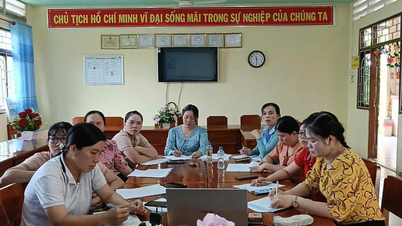
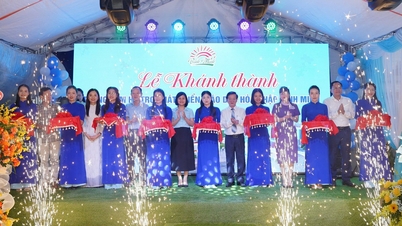

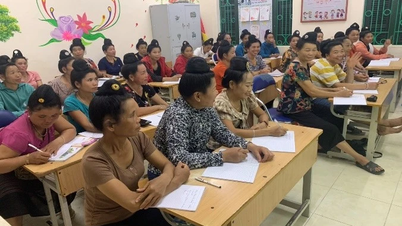



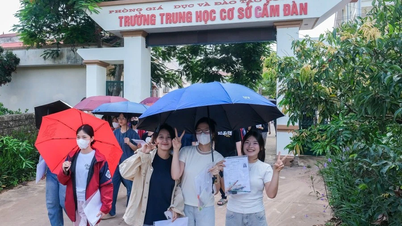


![[Video] University of Foreign Languages - Vietnam National University, Hanoi received the First Class Labor Medal](https://vphoto.vietnam.vn/thumb/402x226/vietnam/resource/IMAGE/2025/11/08/1762614378165_gen-h-z7203450341291-b1f427bb0cccc706a5bcc4b985f90a70-7234-jpg.webp)


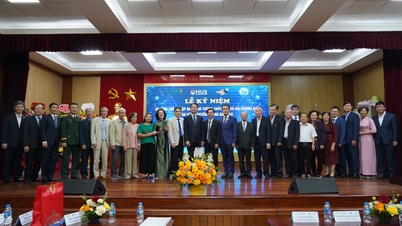




















![[Video] Hue Monuments reopen to welcome visitors](https://vphoto.vietnam.vn/thumb/402x226/vietnam/resource/IMAGE/2025/11/05/1762301089171_dung01-05-43-09still013-jpg.webp)














































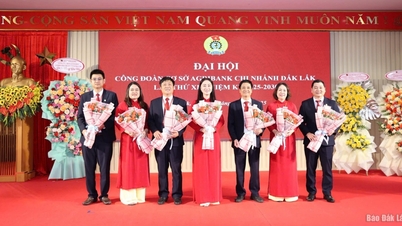
















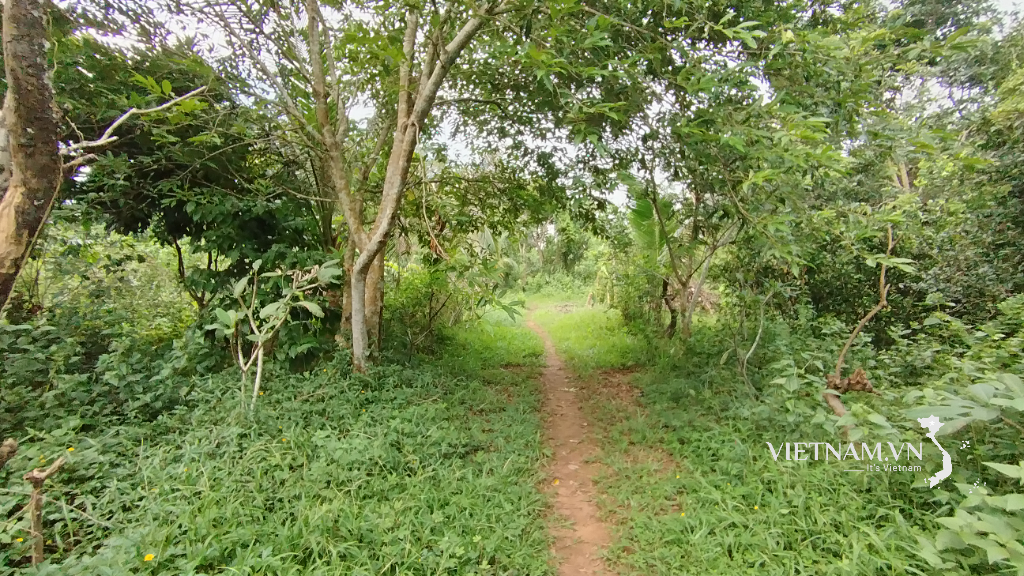



Comment (0)